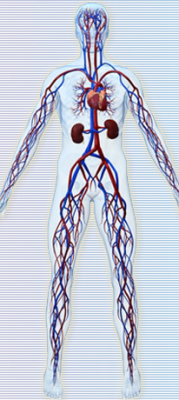
August 6, 2013 — Vanderbilt Heart and Vascular Institute is participating in the VELOCITY study, a randomized controlled clinical study to assess the safety and feasibility of a rapid cooling system for heart attack patients that could minimize damage to the heart.
Vanderbilt is one of six sites in the United States and Canada, and it is the only one in Tennessee, to offer this study of the Velomedix rapid therapeutic hypothermia system in patients with acute myocardial infarctions (AMIs, also known as heart attacks).
Vanderbilt Heart has already enrolled two patients in this investigational study, which will include up yo 60 patients with a severe form of AMI, called ST-segment elevation myocardial infarction (STEMI). Participants in the study are randomized to one of two arms. Patients in the control arm receive the current standard treatment for STEMI, namely percutaneous coronary intervention (PCI) without therapeutic hypothermia. During this treatment, the physician reopens the blocked blood vessel and returns blood flow to the affected region.
Patients in the treatment arm are rapidly cooled first to a temperature of less than 35°C (95°F) just before receiving the same PCI treatment. The Velomedix system circulates cold fluid throughout the patient’s body to achieve the lower temperature.
To be considered for the study, potential candidates must meet the following criteria:
- Must be 18 to 85 years of age
- Having STEMI (? 2mm)
- Arrive at Vanderbilt within six hours of the start of symptoms
- Have no previous myocardial infarction
- Currently not be on dialysis treatment
- Able to undergo magnetic resonance imaging (MRI) scans
- Must be willing to return for a follow-up exam including a second MRI scan approximately 30 days after initial treatment
“In three previous studies, we have seen that if a patient is cooled to below 35°C prior to reopening the blocked coronary artery, the size of the heart attack may be reduced substantially,” said Gregg Stone, M.D., of Columbia University Medical Center / New York-Presbyterian Hospital and co-principal investigator of the VELOCITY study. “The cooling approach in this study may prove to be effective in cooling patients fast enough to provide benefit without significantly delaying reperfusion.”
For more information: www.clinicaltrials.gov


 January 05, 2026
January 05, 2026 









